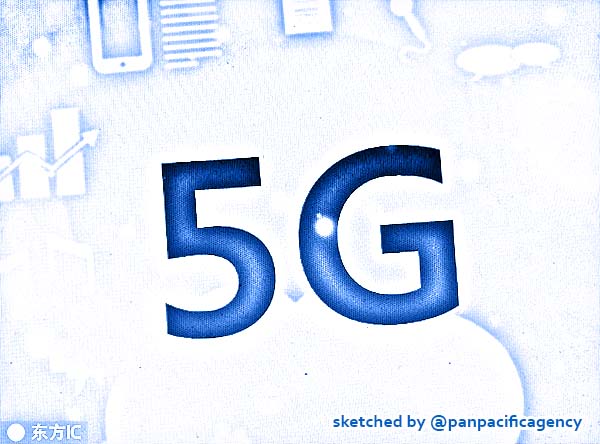Expert warns of the dark side of 5G

5G in China. [Photo/IC]. Sketched by the Pan Pacific Agency.
BANGKOK, Nov 12, 2019, Bangkok Post. Service providers are concerned about artificial intelligence (AI)-based cybercrimes, mobile malware, phishing attacks and ransomware as the world is gravitating towards 5G adoption, where data traffic could skyrocket through connected devices, Bangkok Post reported.
“We will see more of the dark side of AI, called Deepfake, in which AI could be used to produce fake videos of celebrities, public figures and politicians. This could be another level of fake news and could cause chaos and disaster,” said Prinya Hom-anake, founder of ACIS Professional Co, a pioneer cybersecurity training service provider.
He said executives must understand cybersecurity is a priority.
“Any person or organisation can be attacked, just like anyone can be in a car accident,” said Mr Prinya.
He said executives should change their mindset and try to figure out ways to track and tackle cyberthreats, as well as back up their data with suitable approaches.
“They should prepare the time, budget and people for this task,” said Mr Prinya.
Instead of relying on a security firewall, they should encrypt their data so attackers would get nothing from an assault, he said.
Policymakers must pay attention to cybersovereignty, in which data owners must have the ability to control their own data, said Mr Prinya.
He said a great deal of data is stored and used outside the country through free service platforms, such as Facebook and Google.
“We give away our data privacy to let firms use our data for advertising,” said Mr Prinya.
“Data is the new oil,” he said. “That is why a lot of unicorn startups spend large sums of money to offer free services in exchange for consumer data.”
Evan Dumas, regional director for Southeast Asia of Check Point Software Technologies, said mobile malware attacks are on the rise.
“The first half of 2019 saw a 50% increase in attacks by mobile banking malware from 2018,” said Mr Dumas. “This malware can steal payment data, credentials and funds from victims’ bank accounts.”
Phishing attacks will also become more sophisticated and effective, luring mobile users to click on malicious web links, he said.
Ransomware attacks will also continue.
“This year saw ransomware exploits become highly targeted against specific businesses,” said Mr Dumas.